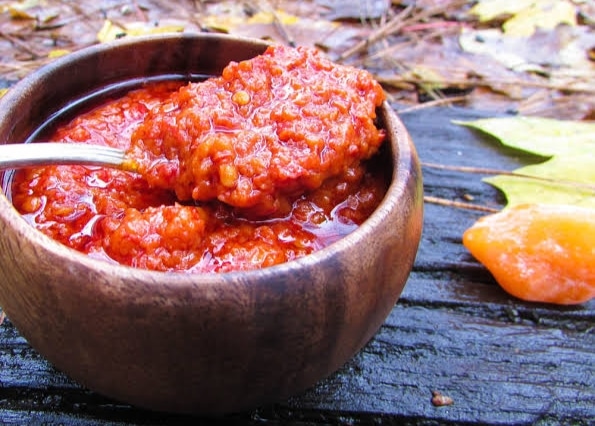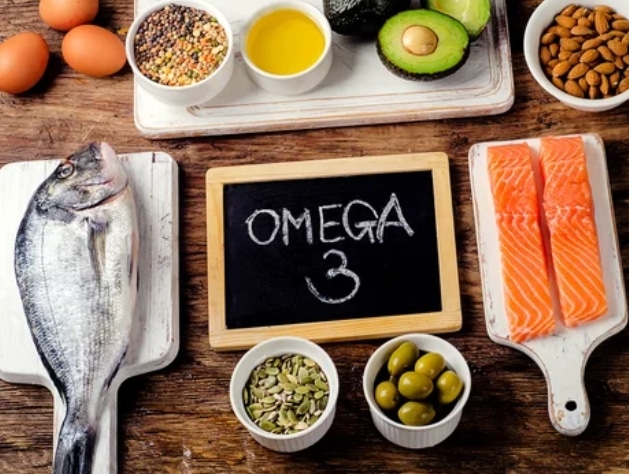Fermented foods make up a part of our regular diet here in Nigeria. The process of fermentation has been practiced all over the world for centuries. Fermentation helps with the preservation of food. It enhances the taste, texture, and aroma of the food. It also makes the food easier to digest and more nutritious, as the process helps to produce important nutrients in the food. Fermentation also removes toxins or anti-nutrients from foods. There are a lot of fermented foods in Nigeria.
In this article, we would be looking at some of the healthy fermented foods that we have in Nigeria.
1. Cassava
Cassava is a plant that ordinarily cannot be eaten. This is because it contains toxins that are harmful to the body. But the process of fermentation helps to eliminate these toxins and makes the cassava edible in many forms.
Cassava is harvested, peeled, and mashed before it is placed in bags and left to ferment for a few days. This is when cyanide, the toxin in the cassava tuber, is removed from it.
From here, we get garri, which is also known as cassava flakes. We also get akpu (fufu) and abacha. All of these foods are gotten from the fermentation of cassava.
2. Pap
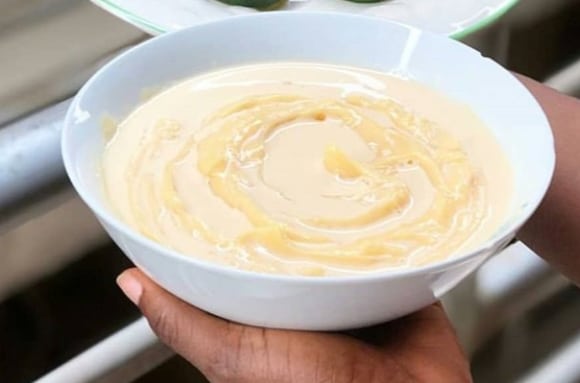
Pap, also called ogi or akamu, is a food that’s made from fermented corn. Corn grains are left to soak in water for about 3 or 4 days.
Sometimes, millet may be added to it. After that, it is then blended, and the chaff is separated from the good stuff.
Without the fermentation process, it would not be possible to make pap, meaning it is important that you let it soak in water for 3 days at least; otherwise, you may get a completely different result.
3. Kunu
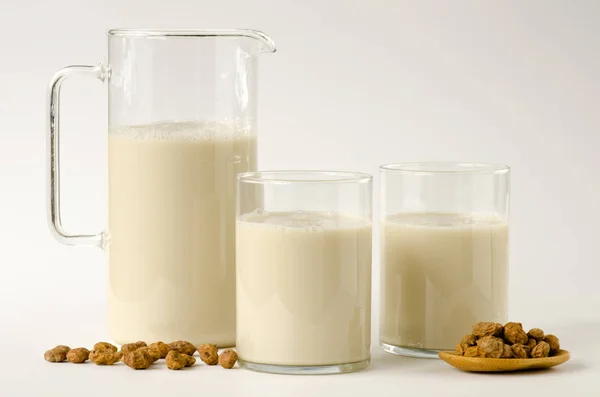
Kunu is a drink that is very popular in Nigeria. Although it has its roots in the Northern region of the country, it is enjoyed in every other part of the country.
Kunu is made from millet which is left to ferment for a day or two. After that, it is then ground together with ginger to enhance the taste.
4. Ugba (Ukpaka)
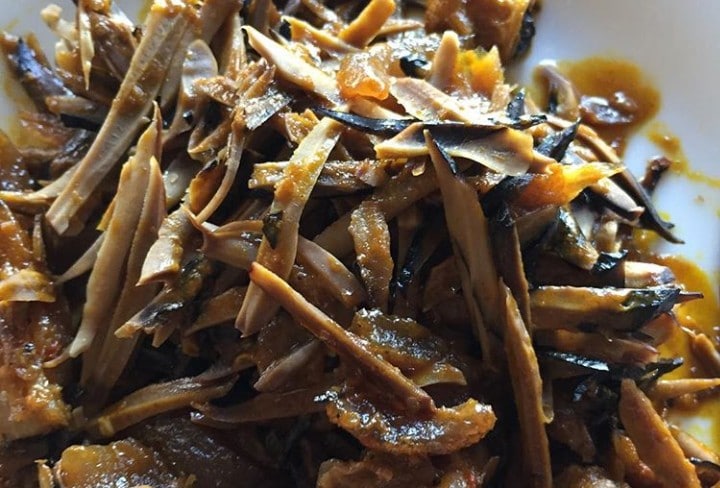
Ugba is a type of food condiment that is very popular in Nigeria, especially in the South East region. It also goes through the fermentation process before it can be enjoyed. Ugba is the seed obtained from the African oil bean tree.
Ugba slices are placed in a bowl that contains salted water. It is left to sit for some days. This softens it up and improves the taste. It also gets rid of toxins like caffeoylputrescine found on it.
5. Locust Beans (Iru)
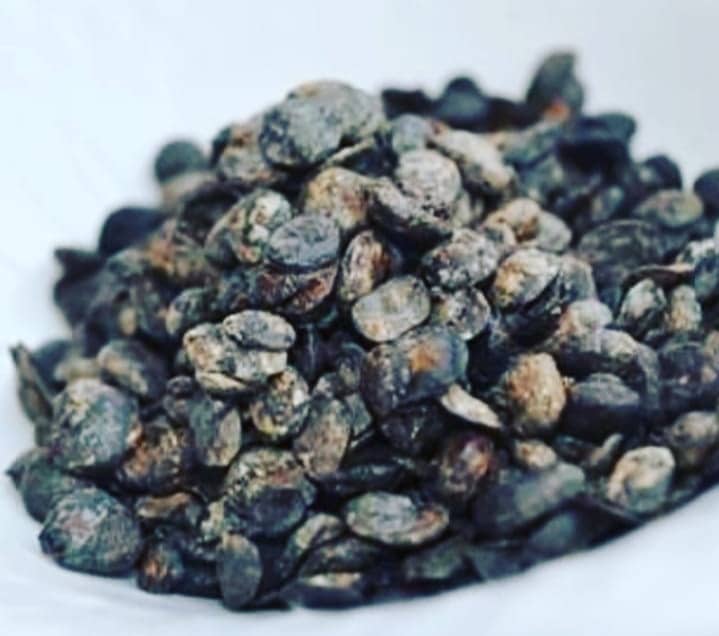
Locust beans, popularly known as iru, this is another condiment that is widely used here in Nigeria. It is obtained from the pods of the African Locust Bean tree or Parkia biglobosa.
The fermentation process for iru comes towards the end after other things have been done to it. It is then left to sit in a calabash filled with water for about three days. This is where the locust beans develop its distinct flavour.
6. Ogiri
Ogiri is another healthy fermented food in Nigeria. It is used for flavoring soups like egusi soup, oha soup, onugbu soup, utazi soup, as well as other delicacies.
Ogiri is made of fermented oil seeds, like castor oil seeds, sesame seeds, or egusi seeds.
It is prepared by boiling the seeds until they are very soft. It is then wrapped tightly in banana leaves and allowed to ferment in large clay pots for about a few days. After it has fermented, it is smoked for 2 hours and mashed into an oily paste — ogiri.
Ogiri is known for its pungent and strong smell.
7. Palm wine
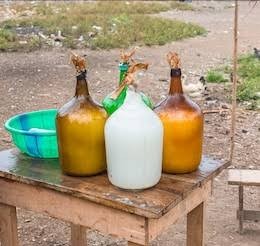
Palm wine is an alcoholic beverage that is widely consumed in many parts of Nigeria. It is produced from the fermentation of sap of a variety of palm species. It is a sweet, milky, effervescent, and alcoholic beverage with some health benefits.
Other healthy fermented foods in Nigeria are Burukutu, Kefir, Kpaye, Lafun, and yoghurt.
YOU SHOULD ALSO READ:
- Healthy Nigerian Foods for Ulcer Patients
- Common Nigerian Foods That Balance Hormones
- 7 Nigerian Foods To Eat When Trying To Conceive
- 5 Nigerian Foods To Eat After A C-section
- 10 Nigerian Foods To Avoid When You Have High Blood Pressure
- 5 Nigerian Foods to Avoid While Breastfeeding
- 15 Nigerian Foods With Low Glycemic Index
- 7 Nigerian Foods To Eat If You Have Acid Reflux Disease
Collins Nwokolo is a human physiologist, writer and health enthusiast. He loves writing helpful articles on health and fitness, which he enjoys sharing with everyone.



